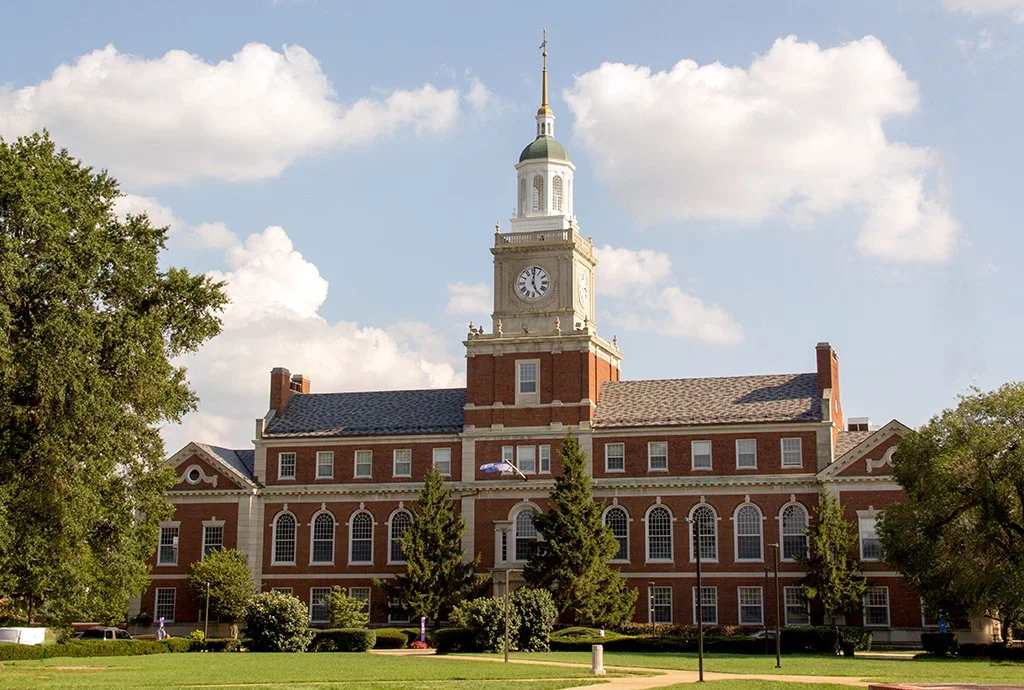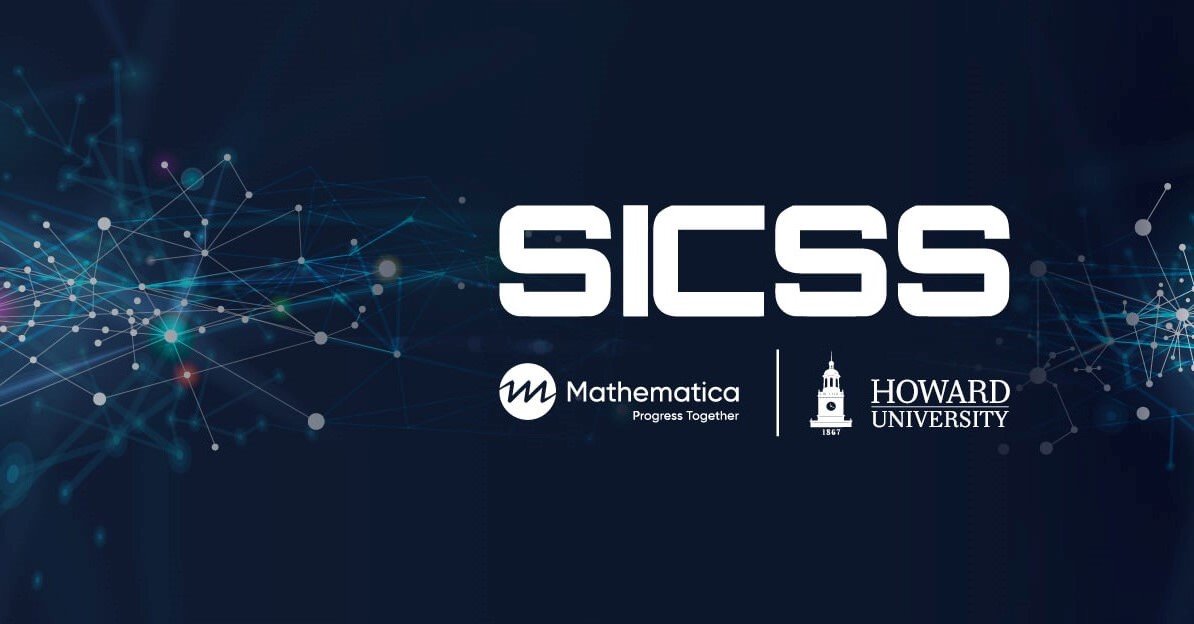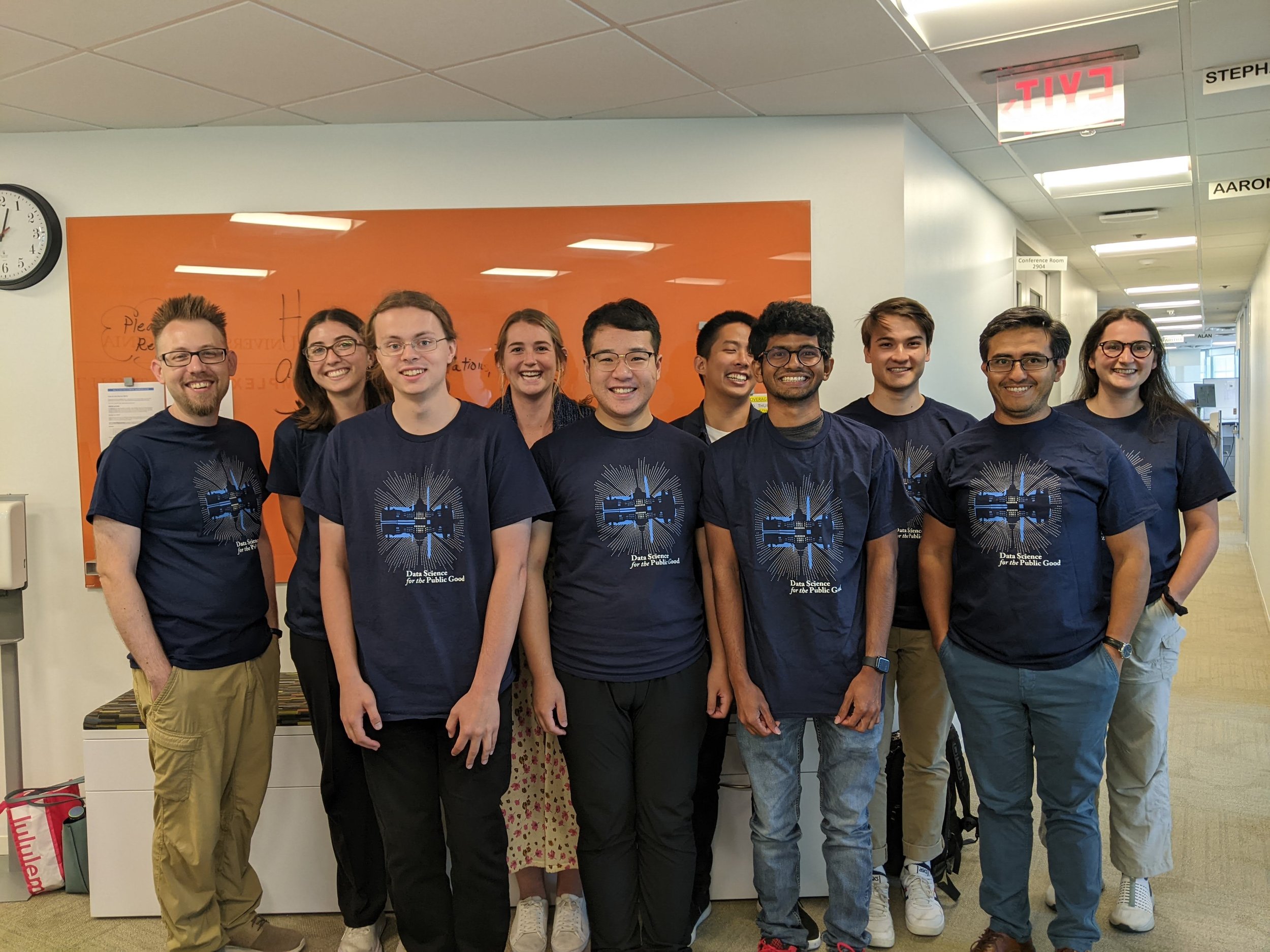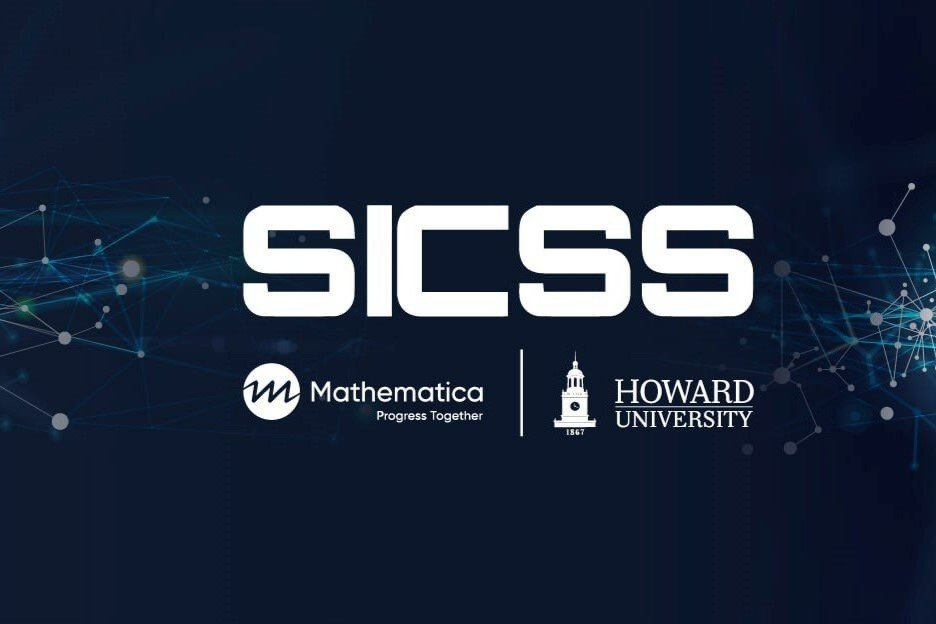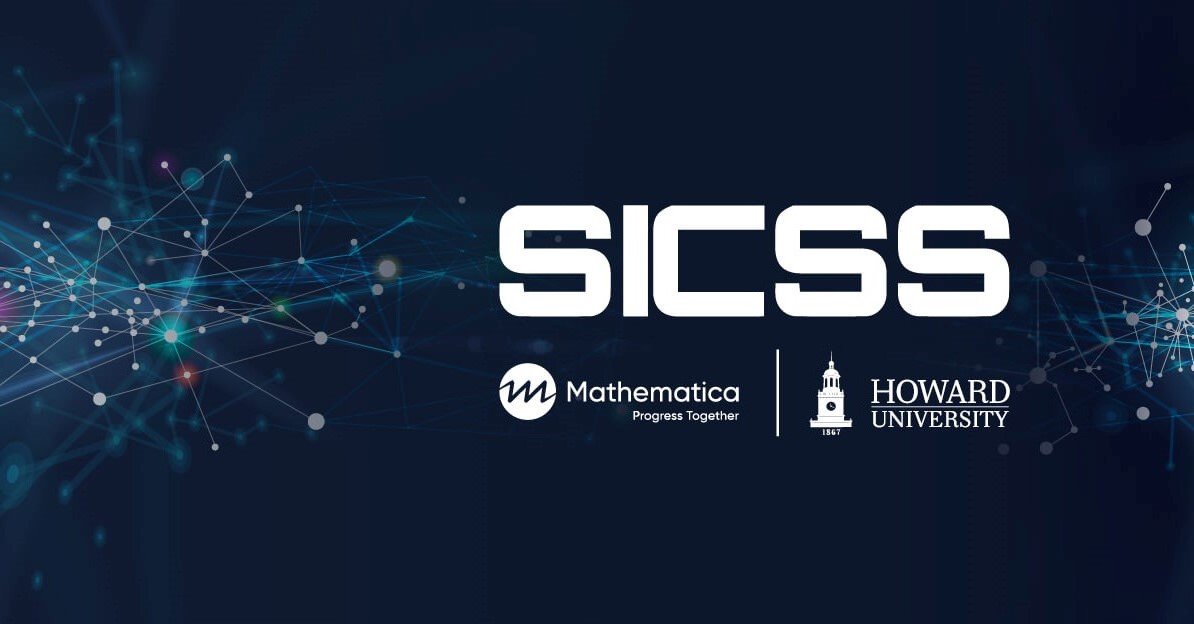Howard University Provost Delivers Opening Plenary Address for SICSS-Howard/Mathematica 2022
The opening plenary of SICSS-Howard/Mathematica 2022 featured a fireside chat with Dr. Anthony K. Wutoh, the Provost of Howard University, and Dr. Amy Yeboah Quarkume, an Associate Professor of Africana Studies, to kick off the event.
Moving From Praxis To Power: Innovative Pre-Institute Marks The Return of SICSS-Howard/Mathematica
The first Summer Institute in Computational Social Science held at a Historically Black College or University, returns to Howard University for its two-day pre-institute, Praxis to Power for graduate students, postdoctoral researchers, and beginning faculty who needed more time to practice computational methods.
Data Science for Public Good
In this Methodspace interview Dr. Joel Thurston and Dr. Cesar Montalvo tell us about how data science can be used for social good, and how their program for young scholars is cultivating a next generation of data scientists.
“Teaching Computational Social Science” webinar recording
In this Sage Methodspace webinar Dr. Matti Nelimarkka and Dr. Friedolin Merhout discuss strategies for engaging with students and building the skills needed to design, plan, and conduct studies using computational social science methods
Research design with computing: Something old, something new
Learn how computational social sciences help scholars to renew their research in several directions.
Ethics in Big Data and Computational Social Science Research
This collection of open-access articles offers multiple perspectives on the use of Big Data and ethical protocols for computational research methods.
SICSS-Howard/Mathematica Alumni Receive Inaugural Excellence in Computational Social Science Research Awards
Summer Institute in Computational Social Science site sponsored by Howard University and Mathematica (SICSS-Howard/Mathematica) awards individuals and teams for the inaugural Excellence in Computational Social Science Research Fund as a unique and exclusive benefit offered to alumni of the site.
Finding Personal Restoration through Computational Social Science at Howard University
A SICSS-Howard Mathematica 2021 participant shares how he reconnected with others in a meaningful way and grew personally during his virtual SICSS experience.
Mathematica’s Paul Decker PhD Delivers Closing Plenary Address for SICSS-Howard/Mathematica 2021
Paul Decker PhD, president and chief executive officer of Mathematica and nationally recognized expert on policy research, delivered the closing plenary address on Friday, June 25th at SICSS-Howard/Mathematica 2021.
Notable Scholars and Business Leaders share Research and Inspiration with Next Generation of Computational Social Scientists
The first Summer Institute in Computational Social Science hosted at a Historically Black College or University featured a panel of guest speakers who inspired participants with their research and professional trajectory. Lecture topics include re-entry into the job force for incarcerated people, financial statuses of small businesses in relation to the COVID-19 pandemic, social identities and systems of power, and discriminatory bias within technology.
Innovative “Bite-Sized Lunchtime Talks” Offer Unique Opportunity for SICSS-Howard/Mathematica Participants To See Data at Work
SICSS-Howard/Mathematica participants had the benefit of novel Bite-Sized Lunchtime Talks during the inaugural SICSS at a Historically Black College or University. The purpose of this SICSS-H/M specific site innovation was to introduce participants to people and organizations doing impactful and complementary work with data.
Wayne A.I. Frederick Delivers Opening Plenary Address for SICSS-Howard/Mathematica 2021
Wayne A.I. Frederick, seventeenth president of Howard University, delivered the opening plenary address on Sunday, June 13th at the end of SICSS-Howard/Mathematica 2021’s pre-institute, Praxis to Power.
Innovative “Praxis to Power” pre-institute marks the beginning of the first Summer Institute in Computational Social Science at a Historically Black University
This blog post is the second of nine in a series called “The Future of Computational Social Science is Black” about SICSS-Howard/Mathematica 2021, the first Summer Institute in Computational Social Science held at a Historically Black College or University.
The Future of Computational Social Science is Black: Welcome SICSS-Howard/Mathematica 2021
This blog post is the first of nine in a series called “The future of computational social science is Black” about SICSS-Howard/Mathematica 2021, the first Summer Institute in Computational Social Science held at a Historically Black College or University. As you go through this package of blogs you will experience the journey we took in 2021.
SAGE Concept Grants: Advice for applicants
Interested in applying for a SAGE Concept Grant? We’ve put together the following advice for applicants based on our feedback for previous years’ applicants, and the criteria we’ll be using to judge this year’s applications.
From Princeton to London via Chicago: My Summer Institute in Computational Social Science journey
Continuing our series on the Summer Insitute in Computational Social Science, Joshua Becker traces his SICSS journey.
Before I get into this, you should know I’m a network researcher. So even though this is ostensibly about a summer program, it’s also about networking. I almost didn’t participate in the Summer Institute in Computational Social Science, or SICSS as I now know it fondly. At the time, I thought it was just about learning the skills — and I felt I had a solid methods foundation — and mainly just applied because it seemed like the kind of thing I was supposed to do as a grad student. Having never previously seen the gorgeous Princeton campus, I imagined the trip itself as little more than spending two weeks in suburban New Jersey rather than at home with my wife. Luckily, I applied. And luckily, I was accepted. Mileage may vary, but I made out well on the deal.
Istanbul as a regional computational social science hub
Summer Institute in Computational Social Science (SICSS) Istanbul was originally conceived in Oxford and Helsinki. Our co-organizer, Akin Unver, and the principal data scientist tutor, Ahmet Kurnaz of SICSS-Istanbul met at Oxford University in 2017 during their joint research project on how best to use data science to gather data from hard-to-access regions such as disaster areas or war zones. From this project arose the need to launch a data science summer school in Istanbul. Our teaching assistant (Yunus Emre Tapan) was then a participant at the SICSS-Helsinki, run by our other co-organizer, Matti Nelimarkka, and also discussed the possibility of launching an Istanbul chapter. Later in 2018, Akin and Emre met at the International Studies Association annual meeting for the first time and agreed to launch SICSS-Istanbul.
Uncovering new keys to countering anti-Black racism and inequity using computational social science
A new Summer Institute in Computational Social Science organized by Howard University and Mathematica promises to bring the power of computational social science to the issues of systemic racism and inequality in America. This marks the first time the successful SICSS model is being hosted by a Historically Black College or University.
My journey into text mining
My journey into text mining started when the institute of Digital Humanities (DH) at the University of Leipzig invited students from other disciplines to take part in their introductory course. I was enrolled in a sociology degree at the time, and this component of data science was not part of the classic curriculum; however, I could explore other departments through course electives and the DH course sounded like the perfect fit.
Five principles to get undergraduates involved in real-world data science projects
As a D-Lab and Data Science Education Program Fellow at the University of California, Berkeley in Spring 2020, I helped to ensure and enhance the quality of more than 40 Data Science Discovery Projects, working with community partners and undergraduate research assistants. The goal of these projects was to connect undergraduates with community impact groups, entrepreneurship ventures, and educational initiatives across UC Berkeley and provide them with hands-on and team-based research opportunities outside the classroom.

